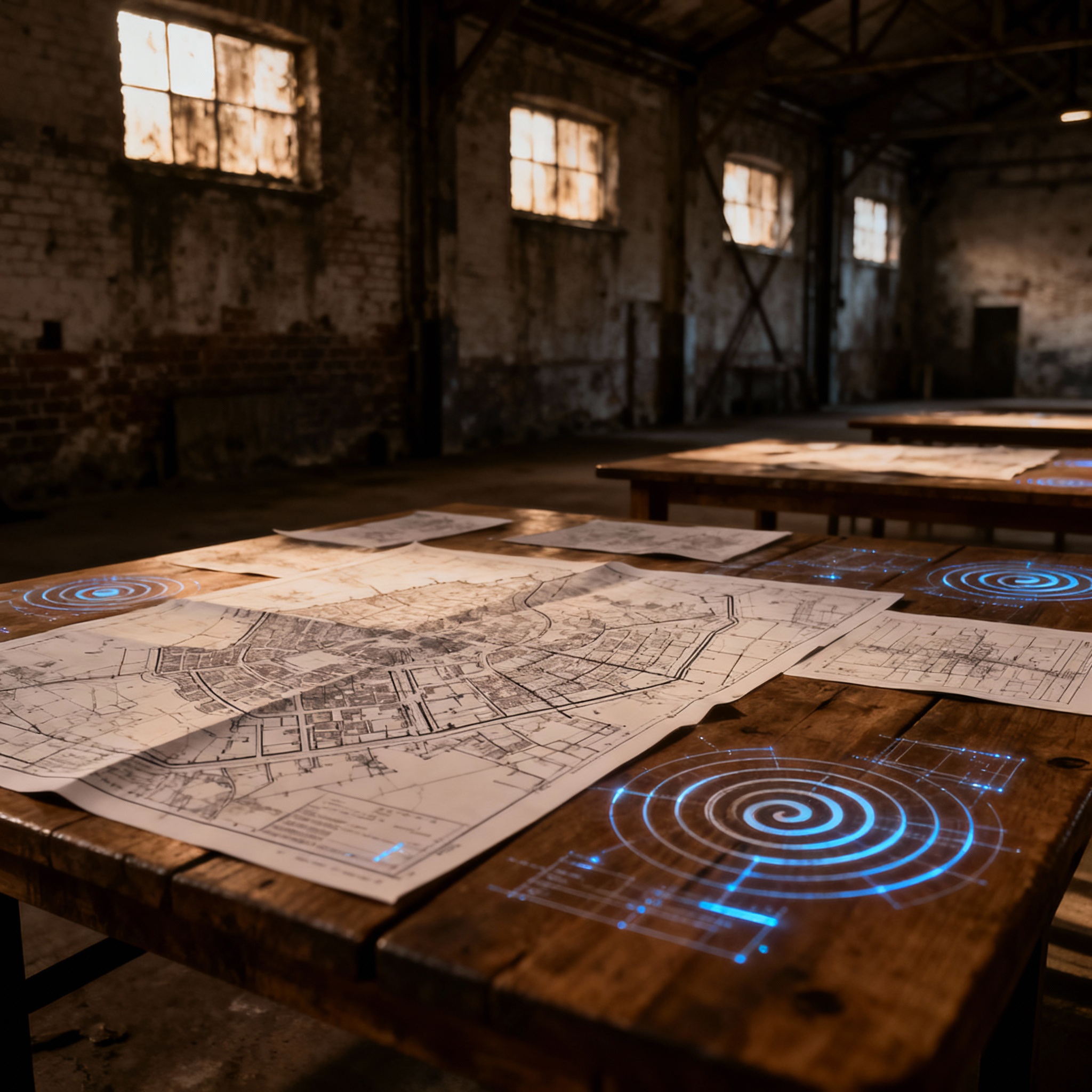The days following the café meeting slipped by in restless thought. Jonas reopened files and blueprints, staring at the city’s dormant plans with renewed suspicion. The altered system was no simple revival—it bore the signature of something built in secret, evolving beyond his intent.
Late one evening, Jonas’s phone buzzed: a message from Lena. “Meet at the old warehouse. You need to see this.”
The warehouse, shrouded in dusk, exuded a sense of faded ambition and silent witness. Tables were covered in digital maps and printouts, the city’s arterial routes marked with hastily drawn spirals—symbols that Jonas vaguely remembered from bureaucratic meetings long ago.
Lena met him with a wary nod. Her eyes, tired yet determined, scanned the chaos of documents. “These plans… they’re bigger than anything on the books,” she whispered. “Someone’s using your proposal, but twisting its intent. There’s a new urban project, and the ethics are muddied at best.”
Jonas traced the spiral motif—a pattern woven into the infrastructure, almost a warning. The scale of the changes, the secrecy, unsettled him. Each new revelation pulled him deeper into a world where the line between legacy and innovation blurred, and ethical certainty was a luxury.
He gazed at Lena, recognizing in her posture a quiet resilience mirroring his own confusion and hope. “We’ll need to face this carefully,” Jonas said quietly. “If the city’s future is being reshaped, we should decide who shapes it.”
Back in his canal-side flat, Jonas struggled with his contradictions—searching for structure, improvising as needed, craving solitude while reaching for connection. The journal entries grew longer, reflections of memories mixed with the tension of choice. In the growing shadows, the city’s fate and his own felt inseparably linked.
In the city’s growing shadows, the lines between ally and adversary blurred…


Leave a Reply